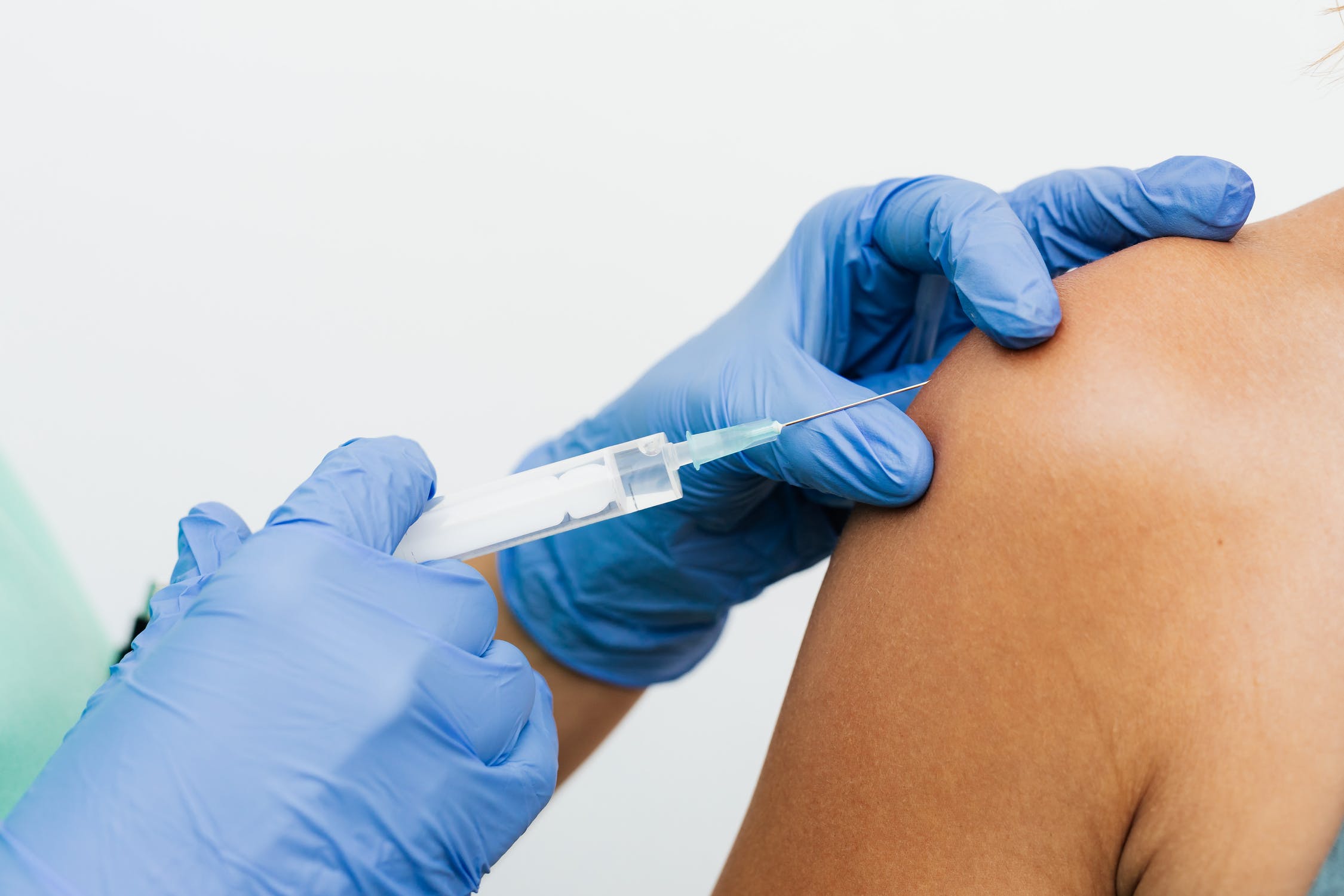News
Vaccine deals open for scrutiny: Ex-Duterte execs

“Our vaccine procurements were largely financed by official development assistance from our reputable multilateral development partners and the related loan agreements mandate the audit of the supply agreements precisely to ensure these are corruption-free,” Dominguez said. (Pexels photo)
MANILA – Cabinet officials of former President Rodrigo Duterte on Wednesday belied claims that they refused to subject vaccine agreements under the scrutiny of the Commission on Audit (COA) during the first hearing of the Senate Blue-Ribbon Committee on the alleged non-disclosure agreement (NDA) with suppliers.
Former Finance Secretary Carlos Dominguez III told the committee that he did not refuse to have the deals entered into by the government with vaccine suppliers undergo auditing.
“Let me emphasize that we have never indicated that the vaccine agreements are exempt from audit,” Dominguez told the Blue Ribbon Committee chaired by Senator Francis Tolentino.
“Our vaccine procurements were largely financed by official development assistance from our reputable multilateral development partners and the related loan agreements mandate the audit of the supply agreements precisely to ensure these are corruption-free,” Dominguez said.
“Under our Constitution, the COA has the jurisdiction to audit all government accounts. These vaccine supply agreements are no exception. While the details could not be publicly divulged in keeping with our confidentiality obligations, these may be duly audited in compliance with government procedures.”
Former Health Secretary Francisco Duque III, who was also present at the hearing, said he even sent a letter to then COA Chairperson Michael Aguinaldo requesting that a special audit be made on the vaccine procurement.
“We also requested the chairperson then to also do an end-to-end performance audit of the entire national deployment and vaccination plan on Covid-19 vaccines. We have a total of 14 letters and correspondences that covers ranging from request for special audit, request for a performance audit, proposed timelines, and then lines for the completion and reporting out of the audit report via COA and also we had drafted in fact the terms of reference that will underpin the audit by COA,” Duque said, noting that the DOH has all the documents and annexes that they could relay to the body.
“The entire DOH family, both from the previous and current administrations, share the same objective of ensuring that our citizens’ hard-earned taxes are well spent and fully accounted for down to the last centavo,” he added.
On Dec. 5, the Senate Blue Ribbon Committee said it would look into the alleged non-disclosure of vaccine procurement contracts following statements made by COA Commissioner Gamalier Cordoba during his confirmation hearing.
Cordoba said the World Bank and the Asian Development Bank were asking for a special audit of the funds borrowed by the government from two institutions.
He said he requested documents from DOH but Duque refused to provide the necessary papers, citing NDA.
During the hearing, Tolentino said the committee could hold their next hearings through executive session so the members can see the contents of the procurement agreements entered into by the government and vaccine suppliers.
Meanwhile, former National Task Force on Covid-19 chief implementer and vaccine czar Carlito Galvez Jr. said the government under former President Duterte was able to swiftly procure vaccines with the main goal of saving lives.
The Congress, he said, was also quick in passing the Republic Act 11525 or the Covid-19 Vaccination Program Act od 2021, which authorized the National Task Force for Covid-19 and the DOH to procure vaccines on behalf of the national government.
“To recall, vaccine production at that time was very limited and was just starting to pick up. Given the safety nets that has been put in place under RA 11525, all our negotiations and procurement transactions were above board. We must also remember that the bulk of our purchases was being funded through a multilateral loan arrangement with Asian Development Bank, World Bank, and Asian Infrastructure Investment Bank. These institutions will not tolerate corruption under their watch which is clearly stipulated in the contract having an anti-corruption and transparency clause,” Galvez noted.
Under Section 3 of RA 11525, the National Task Force and the DOH are allowed to negotiate and approve the terms and conditions of purchases on behalf of the local government units and other procurement entities but not limited to the price and payment terms.
Galvez said the law also gave confidence to the manufacturers to sell their vaccines to the Philippines and ensure transparency and accountability to the parties.
He noted, however, that the NDA is part of the process as among the manufacturers’ main requirements before entering into supply agreements.
“Meaning we cannot go away with the CDA [confidential disclosure agreement]. On the part of the national government, we have no choice at that time as signing this agreement was the only way we could have the needed vaccine doses,” he said.
Tolentino, meanwhile, said the committee is likely to hold two more hearings, and this can be done through an executive session to allow the committee to look into the contents of the transactions.
“I think it behooves upon this committee to really determine whether the modes of procurement were utilized – national budget through the GAA (General Appropriations Act), government to government financing, tripartite agreement with the private sector and LGUs, multilateral arrangement with the ADB and the World Bank, were the right modes,” he said.
“We have to determine through the forthcoming hearings whether all the events unfolded, including the use of AP vax, the utilization of the Hill 2 project, the Asian infrastructure investment coming from the Asian Infrastructure Investment Bank, the World Bank loans, its PHP70 billion 2021 unprogrammed funds for the vaccines, as well as the procedures made not just in the procurement but in the utilization as well,” he added.





















